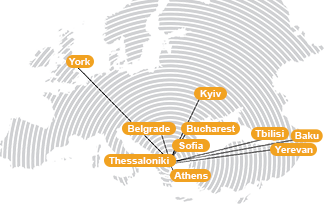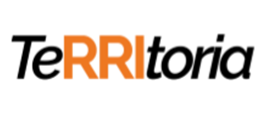TeRRItoria replies to the call H2020 SwafS-2018, topic: “Supporting the development of territorial Responsible Research and Innovation” (SwafS-14-2018-2019). The overall objective of the project is to experiment with the adoption of Responsible Research and Innovation (RRI) approach in European regional and territorial R&I systems. TeRRItoria is based on the idea that RRI1 approaches, policies and practices, developed so far at the level of research institutions, may be adapted to that of regional and territorial governance. Thus the project will contribute to developing what can be called a “Territorial RRI”.
The importance of developing a Territorial RRI may be better understood by taking into consideration the broader transitional processes affecting European society. In the view of TeRRItoria, with the shift from modern to the so called post-modern society, both science and local governance are experiencing critical transformations. On the one hand, science is becoming more relevant for society, but at the same time paradoxically becoming socially weaker: the authority of science is decreasing, while the fear for unforeseen negative side-effects of science is increasing; research-related issues are often controversial, which often results in new restrictions for research; research institutions are increasingly compelled to justify their own existence and activities to the local and national communities. On the other hand, the delocalisation of industrial production, the local impacts of climate change, the emergence of digital technologies, and the effects of national and international migration flows – these are all aspects of globalisation that are difficult to manage for local governments.
In this context RRI can play a role. RRI may be understood as a way of supporting governance by scientific processes under conditions of uncertainty, ignorance and ambiguity. In this perspective, four dimensions of responsible innovation have been identified: anticipation, reflexivity, inclusion and responsiveness. The development of Territorial RRI, then, is interpreted as a strategic framework for:
- widening the number and types of territorial actors included in R&I ecosystems;
- enhancing the capacity of territorial R&I systems to anticipate the ongoing transformations;
- activating reflexive processes in R&I governance at the local level;
- increasing thus the capacity of R&I systems to respond to the above mentioned challenges set by the interplay between science and society.
Adopting RRI at the territorial level is moving into unmapped territory: the attempts to develop such an approach have been few and models of Territorial RRI are not available at the moment. For this reason, TeRRItoria will be based on a selective and experimental approach. The main strategy of the project is to explore synergies with other ongoing experiences that are moving in the same direction of RRI. The project will connect RRI to the general strategy of Smart Specialisation of regions (S3 or RIS3), under the assumption that increasing social responsibility in R&I systems may also foster the competitiveness of European territories. Operationally, the project will develop a set of Transformative Experiments in 5 European selected territories - 4 regions and 1 municipality – each one represented in the consortium by a territorial organisation (2 regional authorities, 2 regional development agencies and 1 municipality). To enhance the general relevance of these experiments, the territories have been selected to span a broad range of different European geo-political contexts: region of Central Macedonia (Greece), region of Emilia Romagna (Italy), region of Trøndelag (Norway), region of North-East (Romania), municipality of Gabrovo (Bulgaria).
The overall objective of the project can be articulated in the following specific objectives:
- To introduce concrete and measurable changes in the R&I systems of the 5 above mentioned territories, so as to make them more inclusive and responsible.
- To introduce concrete and measurable institutional changes in the territorial organisations involved in the project, so that RRI becomes an embedded element of their planning process.
- To develop a better understanding of how RRI can be adapted at the territorial level.
- To contribute to enhance the Smart Specialisation Strategy through exploring synergies with RRI (5+1 RRI keys: Public Engagement, Gender, Science Education, Open Access, Ethics, Governance)
In order to pursue these objectives TeRRItoria will be organised in 8 WPs:WP1 – Management; WP2 – Mapping R&I Ecosystems; WP3 – Mapping governance innovation practices; WP4 – Co-designing Transformative Experiments; WP5 – Implementing Transformative Experiments; WP6 – Evaluation; WP7 – Mutual Learning and Policy Advice; WP8 – Communication and dissemination.






